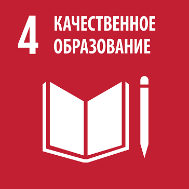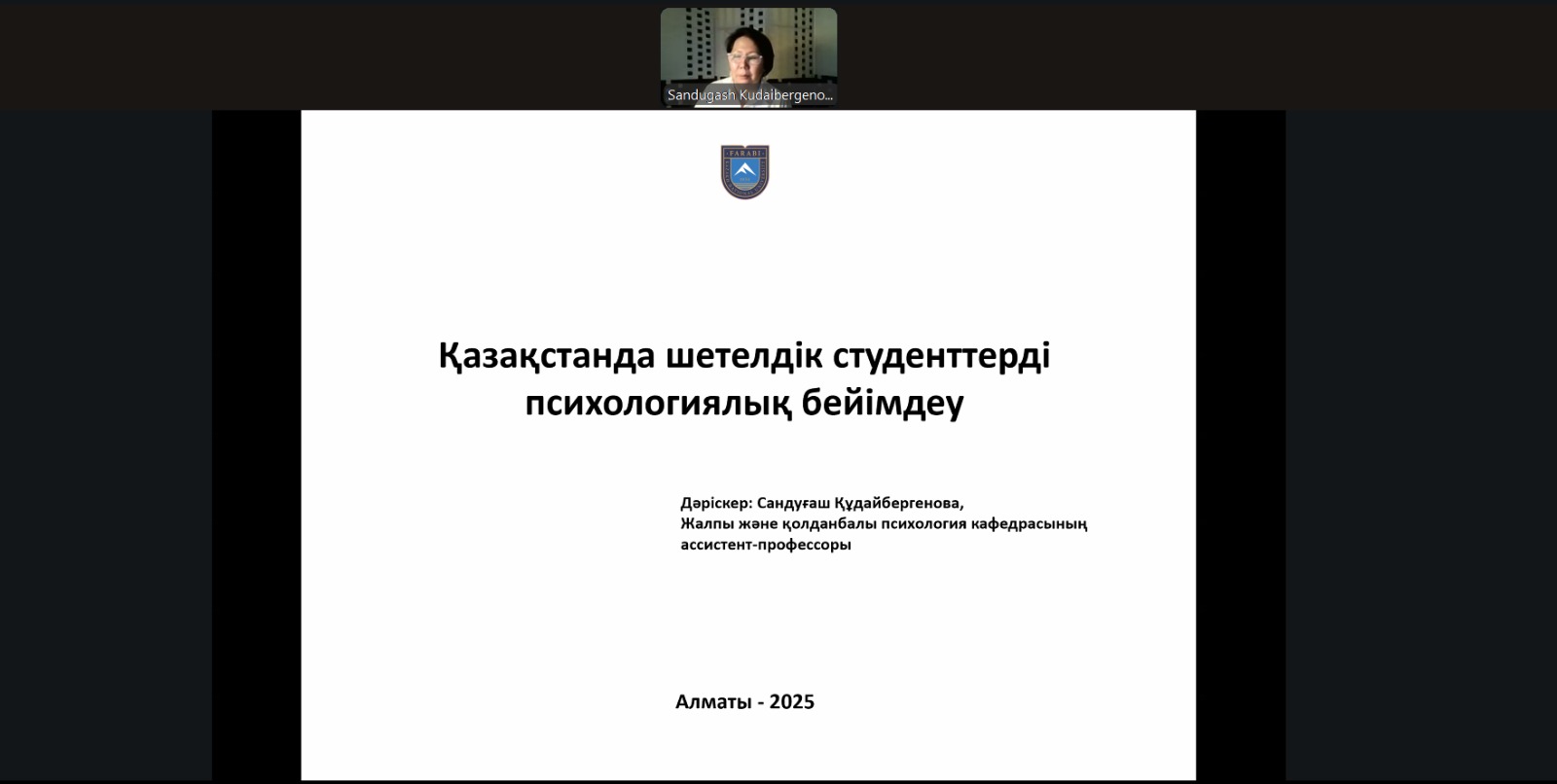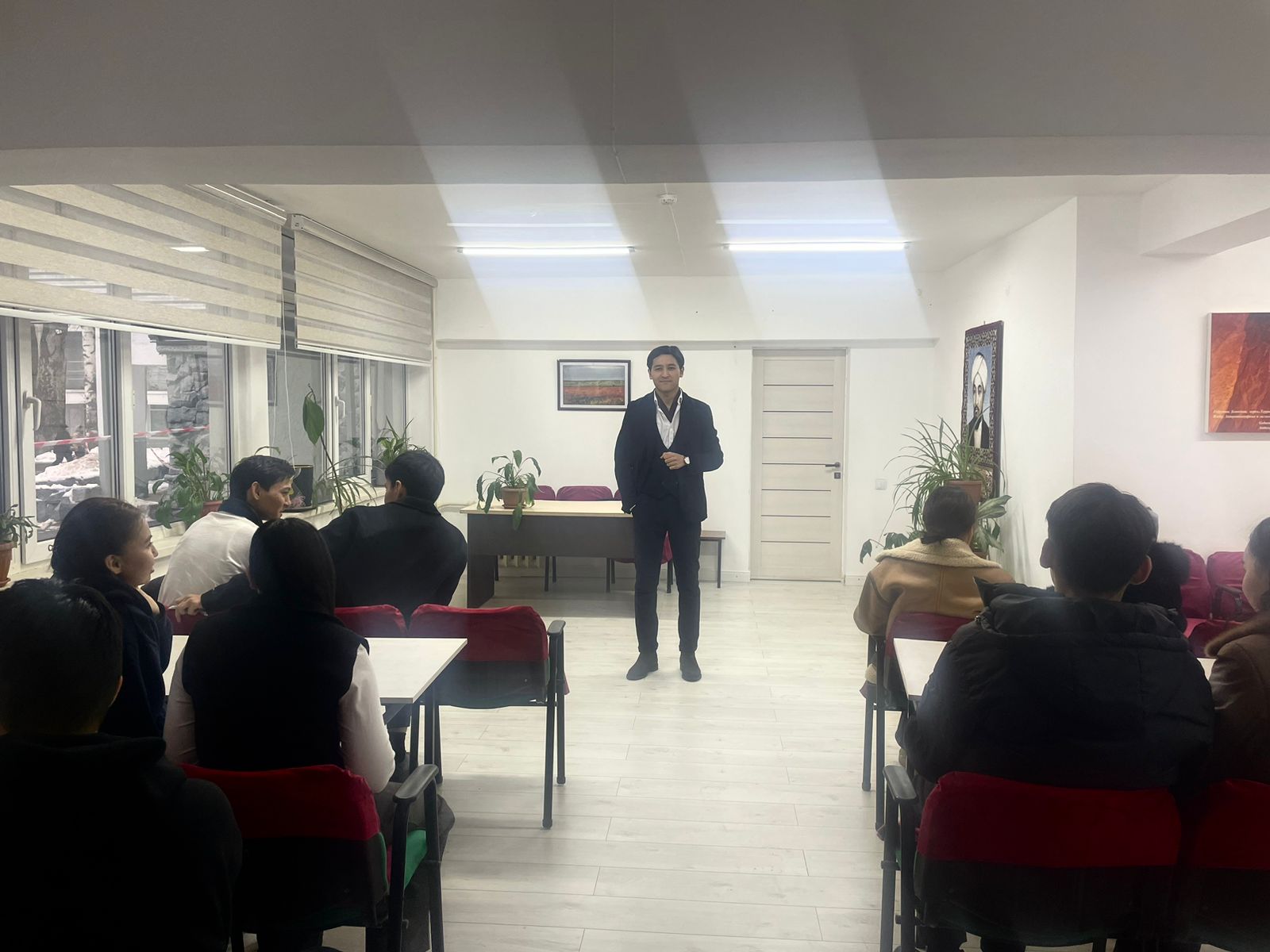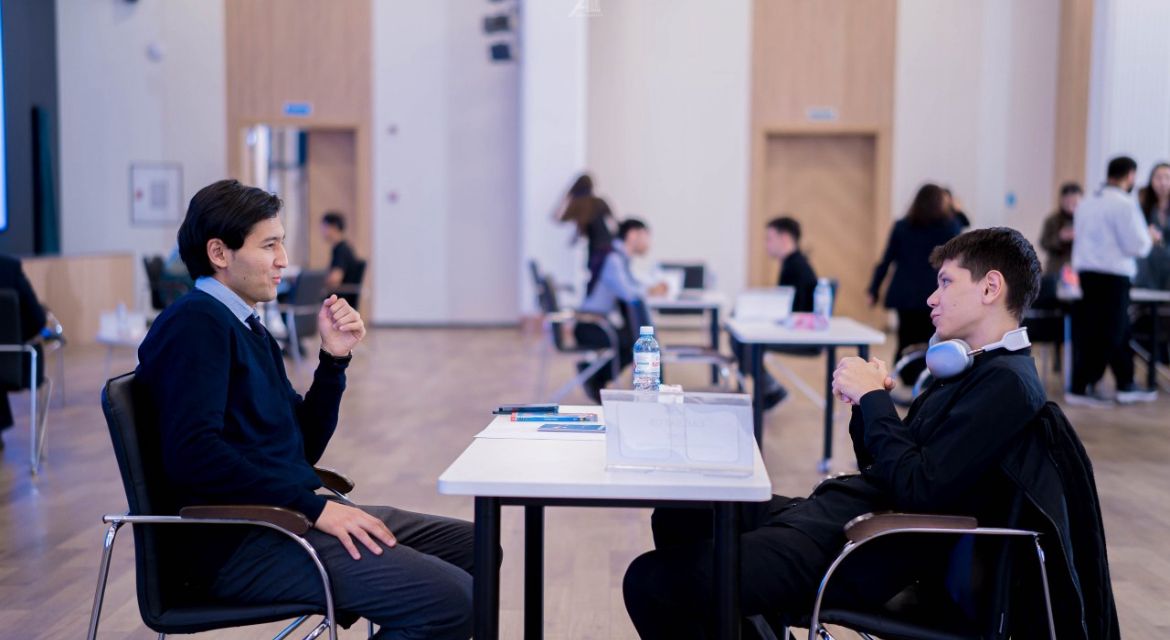Conference 21-22.02.2024: Track 4. INCLUSIVE EDUCATION
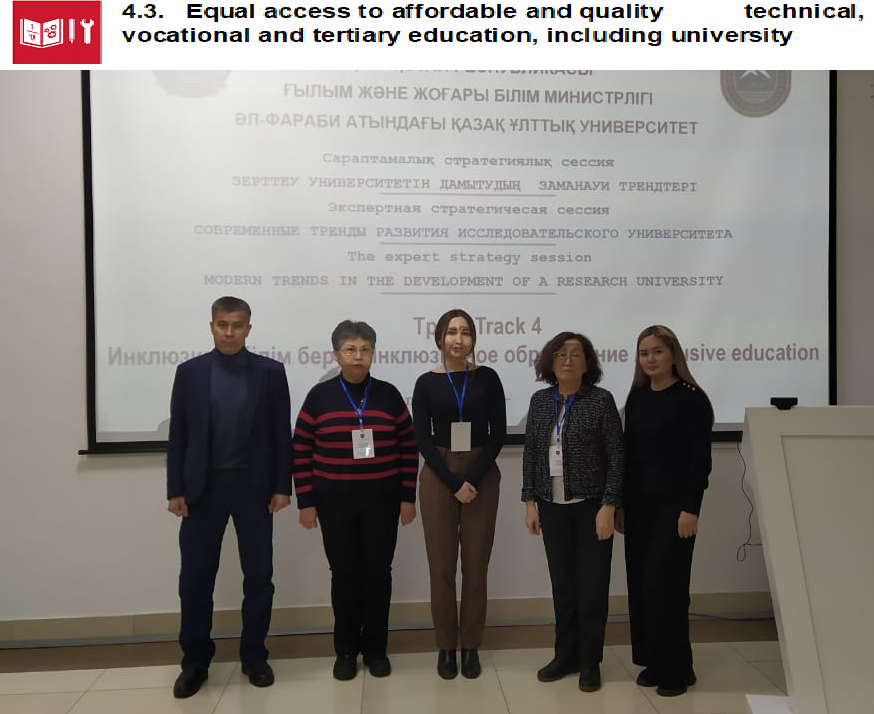
|
|
4.3. Ensure equal access to affordable and quality vocational and higher education, including university education |
On February 21-22, 2024, an expert strategic session “Modern trends in the development of a research university” was held at Al-Farabi KazNU, dedicated to the 90th anniversary of Al-Farabi KazNU. Track 4 of this Session examined the topic “Inclusive education: learning and teaching technologies.”
Track 4 - "Inclusive education": The program of the event
The venue. Hybrid format. Offline – al-Farabi library, online – joining by Link.
The goal of the strategy session is to develop an educational strategy in which science acts as a key driver for the development of education at a research university.
Panel expert session: Track 4. Inclusive education
|
Time |
Track |
Event
|
Venue |
|
14.00–17.00
|
Track 4 |
Inclusive education: learning and teaching technologies
Moderator
Tazhina Gainia Orazbekovna Candidate in Biological Sciences, PhD, director of Scientific-Practical Center for Inclusive Environment Speakers:
Q&A session |
al-Farabi library 304 room
|
|
Link to join:
|
|||
|
22.02.2024 9.00-11.00
|
|
Discussion of Recommendations for Resolution: Track 4 |
|
Photo chronicles of speakers' speeches
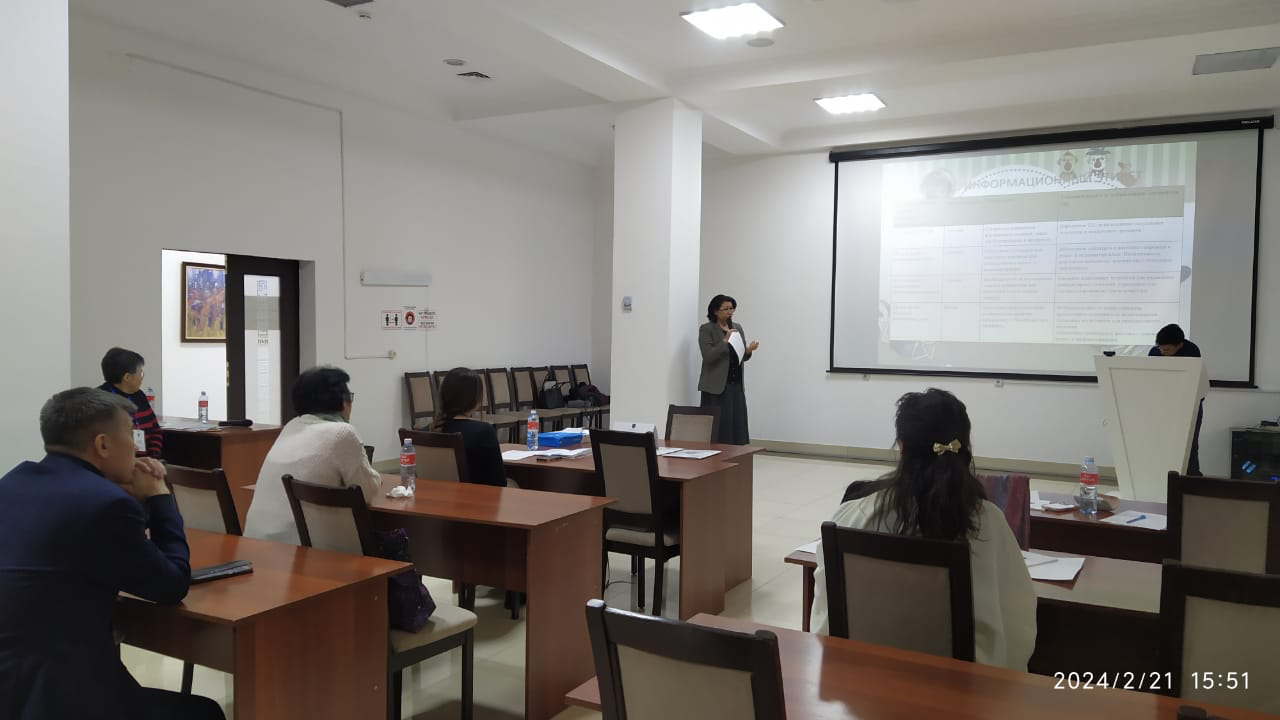
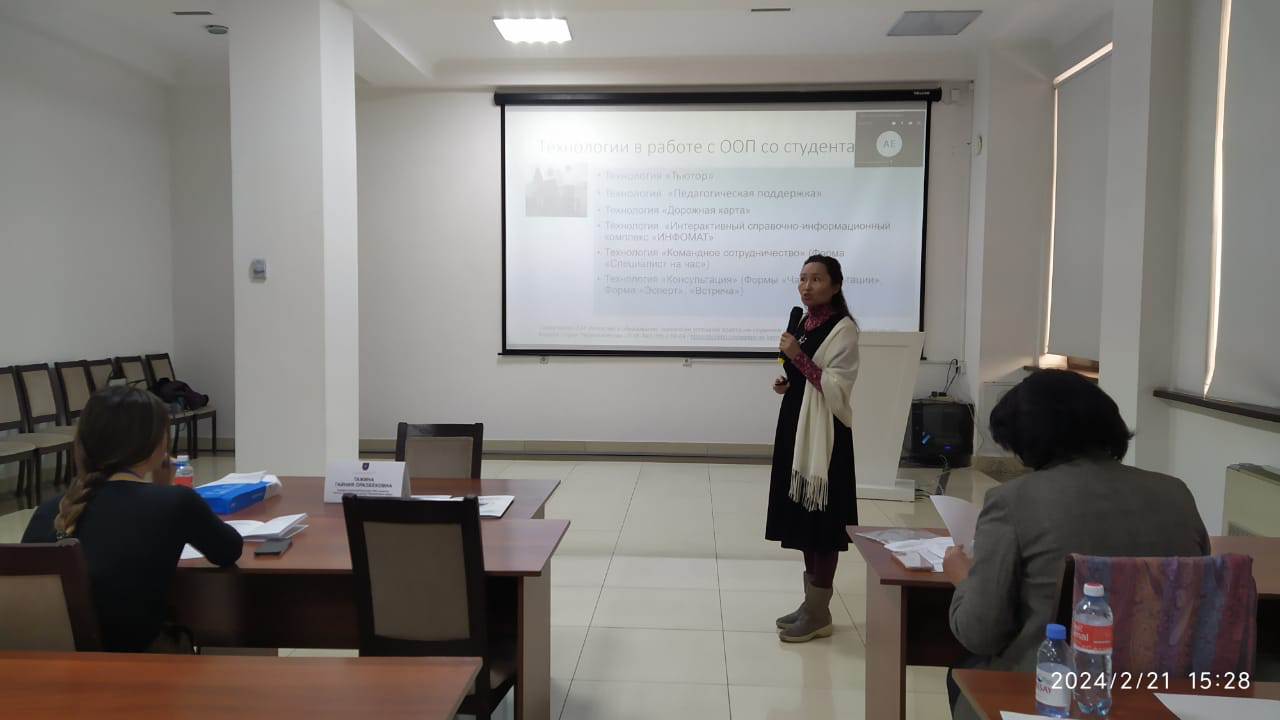
Team of experts: discussing and creating recomendations on inclusive university education for the Ministry, HEIs and employers
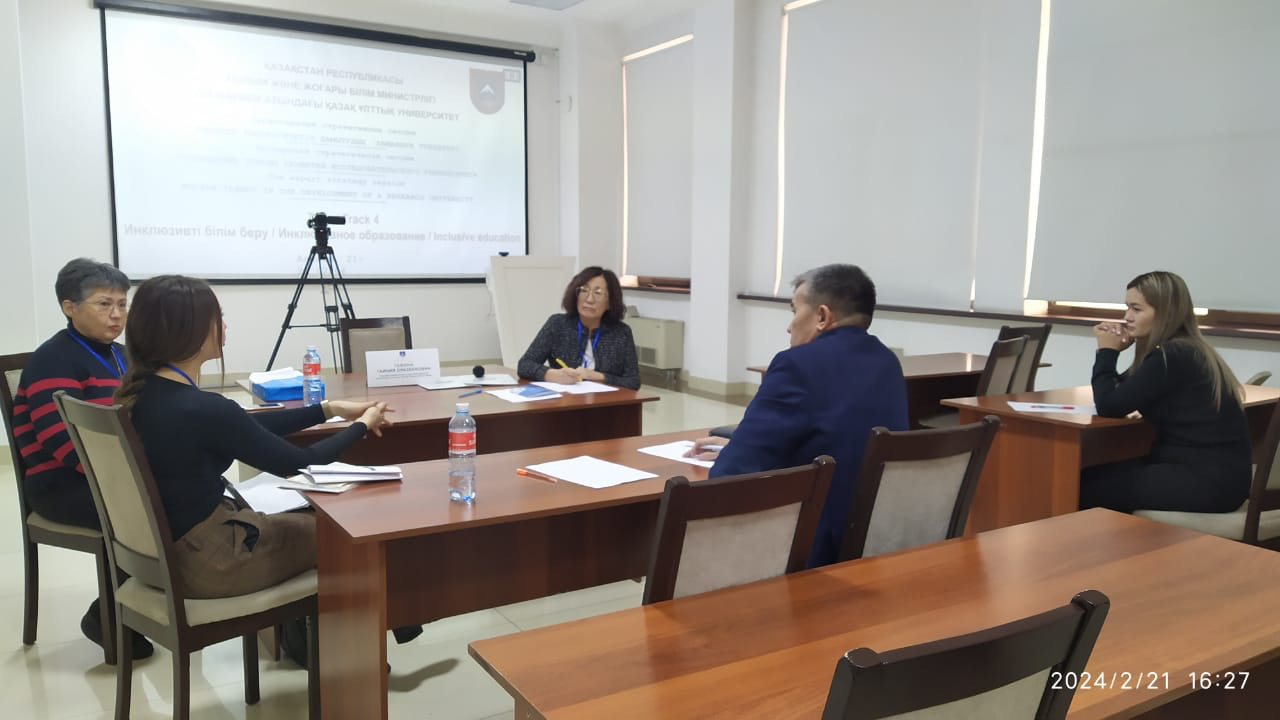
Track 4 discussed the following topics:
1. Assistive technologies and technical means for teaching students with special education needs in universities.
2. Features of teaching biological sciences for students with special education needs.
3. Opportunities of the Psychoanalytic Association of Central Asia and Kazakhstan in the socialization of students with special education needs.
4. Technologies for the development of the personality of students with special education needs in the university education system.
5. Psychological support for students with special education needs at the university.
6. Requirements for electronic educational resources for the course “Digital Literacy” - developments for students of EP in primary school of inclusive education.
8 speakers presented on the track, including:
KazNU teachers -5;
Teachers of other universities of the Republic of Kazakhstan - 2;
Employers - 1.
The following recommendations were created for:
Ministry of Education and Science of the Republic of Kazakhstan:
1. Allocate a target budget for the implementation of the Roadmap for inclusive education in higher education institutions in terms of creating a barrier-free architectural environment.
2. Allocate a target budget for the implementation of the Roadmap for Inclusive Education in Higher Educational Institutions in terms of the acquisition of sound-amplifying, reading, technical devices, audio descriptors, Braille speech decoders, etc. for adaptation to the educational environment of the blind, visually impaired, deaf, hard of hearing and other categories students with special educational needs.
3. Provide grants for the education of various categories of inclusive students: foreign students, students from minority groups, students with special education needs.
HEIs:
1. Each HEI should develop its own roadmap for inclusive education in accordance with its specifics.
University administration:
1. Create and regularly update an Inclusive Education resource center,
equipped with auxiliary technical means according to the needs of various categories of students with special education needs.
2. Conduct practical classes with students of pedagogical educational programs in resource centers of Inclusive Education
3. Conduct training and retraining of teaching staff at the Inclusive Education resource center for working with students with special education needs.
Employers:
1. Create equipped workplaces for students with special education needs for the period of their practical training.
2. Create equipped workplaces for graduates with special education needs.
3. Create a joint employer-university program to ensure transition and support, adaptation of a graduate with special education needs to professional activity.
